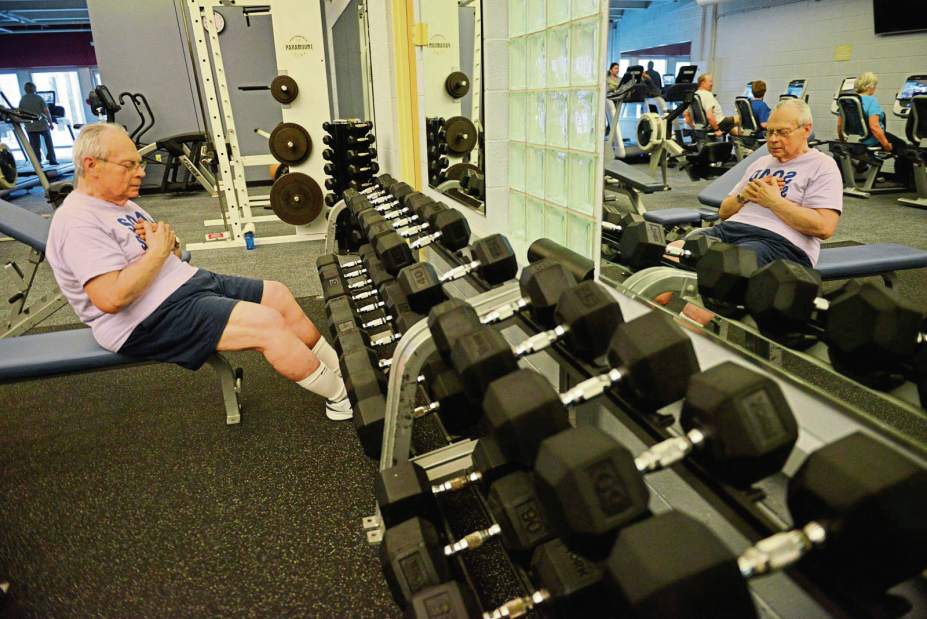Twenty-five years after police chief Gregory Patrick Adams was shot to death, investigators want to see if a DNA test can help pinpoint the location of his alleged killer.
Adams was shot to death Dec. 4, 1980, along Butler Road.
Blood was found inside the white 1980 Mercury Cougar driven by the suspect, Donald Eugene Webb, and on the ground in a trail leading to Adams' patrol car. Since that night, there have been no confirmed sightings of Webb, despite the fact that his photo and information have been on the FBI's Most Wanted list since 1981, longer than any other suspect.
Now, investigators wonder if Webb, who would be 74 years old, is even still alive.
Has he ever been arrested, perhaps while using an alias⢠If so, did fingerprinting somehow fail to identify him⢠Or was his body one of the hundreds of unidentified bodies found across the country since the killing.
Investigators are seeking to conduct a DNA analysis of Webb's blood for comparison to a national law enforcement DNA database.
Retired state trooper James Poydence, of Kiski Township, acknowledges that it's possible Webb may have been killed, citing his alleged connection to organized crime. The news of Adams' killing triggered an intense nationwide manhunt and certainly would have been heard by any associates.
Poydence knew Adams and was the lead investigator on the case. It was Poydence who obtained an arrest warrant -- still in effect -- that charges Webb with murder. Webb worked with the infamous Fall River Gang, stealing jewelry from stores across the Northeast, Poydence said. Webb's inner knowledge of the gang members and how they operated could have led to his death at the hands of his associates, who may have been unnerved by the voluminous amount of publicity.
Poydence is unofficially continuing the hunt for Webb with friend and retired FBI Agent Peter D. McCann. Other retired officers say they, too, are prepared to help. They won't give up.
"This case is solved. We just haven't found Webb yet," McCann said.
Adams had the experience of working as a patrolman and plainclothes drug officer in Washington, D.C., for two years prior to becoming a part-time Fawn officer. He worked there for five months with a friend he served with in the Marines before a job opened in Saxonburg.
He had a wife and two young sons, and had attended Duquesne law school at night before he withdrew to become chief.
One night, Adams stopped Webb for a traffic violation.
There are no known witnesses to the savage struggle that erupted between Adams, 31, and Webb, at 49, a scrappy ex-con who Poydence said had once been charged with a home invasion. Webb was about 10 to 15 pounds heavier and he had the strength and moxie of an ex-con.
The men appear to have violently wrestled over guns -- Adams' .38-caliber revolver and Webb's .25-caliber pistol.
In the days after the fight, McCann found a bullet fired from Webb's gun more than 100 yards away in a funeral home parking lot.
"It was as if the gun was pointed in the air and they were grabbing for it," McCann said.
Two of the same small-caliber rounds had hit Adams.
The chief, who was not wearing a bullet-proof vest, was shot in the side of his chest. One bullet collapsed a lung. One ripped the bottom of his heart. He also was beaten in the head. The radio microphone was ripped out of his patrol car.
When Adams' revolver was found four months later about seven miles away along Cornplanter Road in Winfield, police opened the cylinder of the rusted weapon to see that all six bullets had been fired. None was found.
Police found Webb's blood at the parking lot where the fight took place, on the snow where Webb's Cougar had been parked and inside that car when it was found weeks later in Rhode Island.
Investigators found Webb's empty pistol in a bush near the parking lot.
Webb's driver's license -- using the name of his wife's dead husband -- was found in the snow, too.
Police used that and the Cougar rental information to zero in on Webb.
Widow, others can't forget
"It bothers me," said Mary Ann Adams Jones, who had two children with Adams.
Her late husband's killer is "getting away with murder" unless he is caught or police find out that he is dead, she said.
"My two sons never knew their dad. Ben turned 3 about three weeks after his dad died and Greg was just 8 months old. He never knew his dad," she said.
Jones said life changed instantly on that tragic day so long ago.
It was early. A neighbor with a police scanner telephoned and said she was coming over right away.
"No you're not. Tell me what's going on," said Jones, who said she was sick in bed at the time.
She had just retreated to bed after putting her youngest son down for a nap. Then the borough secretary called to say she was on her way. The chief was hurt. Badly.
"I ran back to finish getting dressed and my neighbor was there holding my youngest son Greg. I remember the look on his face. Ben was still napping," she said.
Adams died in the ambulance on the way to the hospital.
State police provided a rifle salute when he was buried in St. Mary's Cemetery, Herman.
Jones was left alone with the boys and she packed a trunk with the late chief's belongings for sons Ben, now 27, and Greg, 25.
Through their mother, the men declined requests to be interviewed. It's hard for them, she said.
She remarried 16 years ago.
Only now is she thinking about opening the heavy trunk that her husband, James E. Jones, has moved in the basement of their Penn Township house many times over the years.
"I don't know what's inside, of course, but I can tell you that it's heavy," he said.
The Adams case continues to weigh heavily on police officers.
State police still have a first-degree murder warrant for Webb and the FBI wants him for flight to avoid prosecution.
In Butler, state police investigators follow up on each tip they receive about Webb.
"Sometimes, the investigation flares up, but it then dies down," said Trooper Chris Birckbichler, the latest lead investigator.
"Until we receive information to the contrary, he will remain on the Ten Most Wanted list," added Gail Marcinkiewicz, a spokeswoman for the FBI office in Boston.
"This is still an open case," said FBI Agent Jeff Killeen in Pittsburgh.
"We have a long memory and we don't forget," explained Randy Tomb, who manages the Most Wanted program.
Webb or men resembling him have been spotted in Canada, Costa Rica, near Seattle, at Seaconch, Mass., about 20 miles from Webb's wife Lillian's house in New Bedford, Mass., Miami and elsewhere.
Some have been fingerprinted; all have been released.
In a curious twist, last April Birckbichler and Cpl. Cheryl Michalski learned that a man in Detroit was using Webb's name, age and Social Security number.
"Detroit police trailed the address to a burned-out house in a poor section of town. It was a dead end," said Birckbichler. "We think this was a case of identity theft. But who would take the name of a man on the FBI's Ten Most Wanted list?"
That man hasn't been found yet. Neither has Webb.
His wife, LiIlian, doesn't have a listed telephone number.
Investigators said she was known to be a saleswoman for a New Bedford box company. That company no longer exists, but a man at the only remaining box company said he knew her and would give her a reporter's phone number.
She hasn't returned that call. "That's not surprising," Poydence said.
Webb was born Donald Eugene Perkins in Oklahoma in 1931. He enlisted in the Navy but was dishonorably discharged. He changed his name to Donald Eugene Webb sometime in the 1970s after serving federal and state prison sentences many years before the deadly encounter with Adams.
All of that may have caused an early death for Webb, points out Indiana University of Pennsylvania criminologist Dennis Giever.
"Any time in prison is hard time. It cuts down on life expectancy," he said.
"Maybe the Mafia wanted to clean its own mess. It's easy to dispose of a body. The ocean is large and there are a lot of buildings with concrete and it would be a couple of a hundred years before someone found a body," Giever said.







